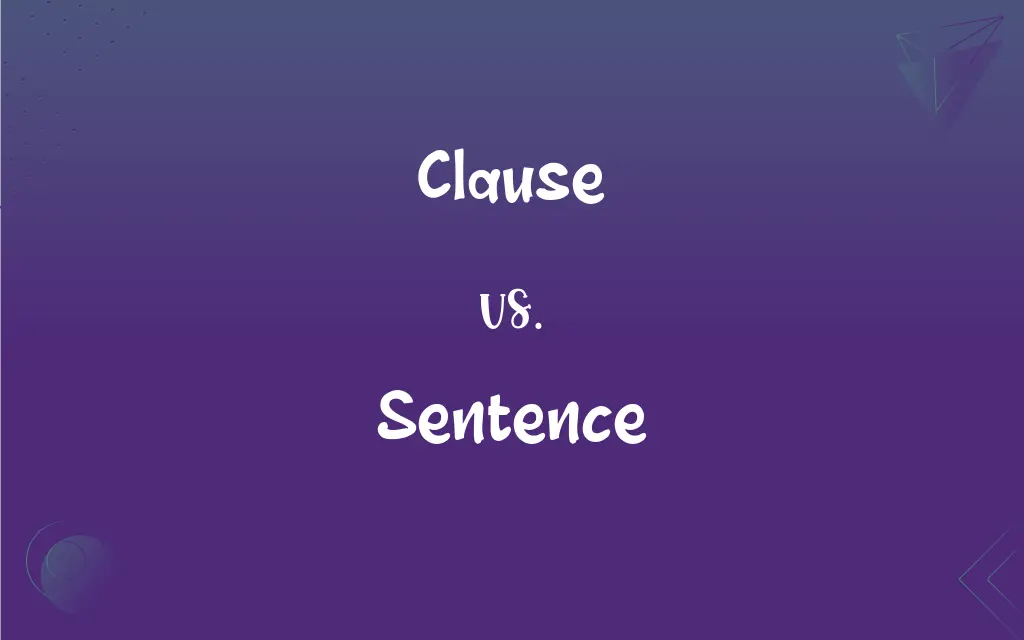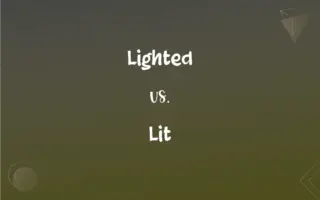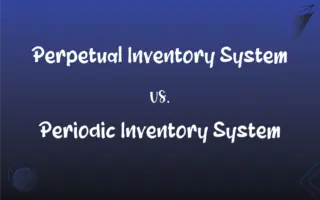Clause vs. Sentence: What's the Difference?
Edited by Aimie Carlson || By Harlon Moss || Updated on October 25, 2023
A clause is a group of related words containing a subject and a predicate; a sentence is a set of words that express a complete thought and can stand alone.

Key Differences
A clause is a fundamental building block of sentence construction. It consists of a subject and a predicate, which makes it capable of conveying a meaning. A sentence, on the other hand, is a more extensive structure that can be composed of one or multiple clauses, expressing a complete thought.
Not all clauses can stand alone. While an independent clause can stand by itself as a complete thought, a dependent clause cannot. A sentence, however, is inherently complete, whether it's formed from a single independent clause or multiple clauses combined.
In terms of function, a clause can serve various roles within a sentence. It can be the main message, a subordinate idea, or even an embedded detail. A sentence, in contrast, serves as the primary vessel to convey an entire idea or statement, question, command, or exclamation.
Punctuation often differentiates clauses and sentences. Clauses within a sentence might be separated by commas, whereas sentences are typically delineated by periods, question marks, or exclamation points.
Clauses can be classified into different types, like independent and dependent clauses. Sentences, however, are categorized based on their purpose, such as declarative, interrogative, imperative, or exclamatory.
ADVERTISEMENT
Comparison Chart
Components
Contains a subject and a predicate.
Can be made up of one or more clauses.
Standalone
Not always (depends on clause type).
Always expresses a complete thought.
Function
Can serve as main or subordinate idea.
Conveys a full idea or statement.
Punctuation
Can be separated by commas within a sentence.
Typically ends with a period, question mark, or exclamation point.
Types/Categories
Independent, dependent, etc.
Declarative, interrogative, imperative, exclamatory.
ADVERTISEMENT
Clause and Sentence Definitions
Clause
A unit within a sentence that can be independent or dependent.
She runs is an independent clause.
Sentence
A coherent expression terminating with a punctuation mark.
Hurry up! is an imperative sentence.
Clause
A segment of a sentence capable of conveying meaning.
Though she was late is a clause providing context.
Sentence
A statement, question, command, or exclamation.
What a beautiful view! is an exclamatory sentence.
Clause
A grammatical unit smaller than a sentence but larger than a phrase.
While I was reading is a dependent clause setting a time context.
Sentence
A grammatical unit expressing a complete thought.
The sky is blue. is a declarative sentence.
Clause
A combination of words with its own subject-verb relationship.
Because the movie was boring is a dependent clause.
Sentence
A set of words with a subject, verb, and full meaning.
Do you want tea? is an interrogative sentence.
Clause
A group of words with a subject and predicate.
When the rain stopped is a dependent clause.
Sentence
A linguistic unit consisting of one or multiple clauses.
She sings, and he dances. combines two independent clauses into a sentence.
Sentence
A grammatical unit that is syntactically independent and has a subject that is expressed or, as in imperative sentences, understood and a predicate that contains at least one finite verb.
FAQs
How does a sentence differ from a clause?
A sentence expresses a complete thought and can stand alone, while a clause might not always be complete on its own.
What punctuation typically ends a sentence?
A period, question mark, or exclamation point.
Can a sentence be made of multiple clauses?
Yes, a sentence can comprise one or more clauses.
Can a sentence be just one word?
Yes, in cases like imperative sentences, e.g., "Run!"
Is every clause a sentence?
No, only independent clauses can stand alone as sentences; dependent clauses cannot.
How are multiple clauses in a sentence typically separated?
They are often separated by conjunctions and appropriate punctuation, like commas.
What is a clause?
A clause is a group of related words containing a subject and a predicate.
What are the types of sentences based on purpose?
Declarative, interrogative, imperative, and exclamatory.
How are clauses used in complex sentences?
Complex sentences combine an independent clause with one or more dependent clauses.
Are phrases and clauses the same?
No, while both are groups of words, only clauses have both a subject and predicate.
Why are dependent clauses called "dependent"?
Because they rely on other clauses (usually independent) to make complete sense.
What's the difference between a sentence fragment and a complete sentence?
A fragment lacks elements that make a sentence complete, while a complete sentence expresses a full thought.
Are all sentences long and detailed?
No, sentences can be long or short, detailed or concise, as long as they express a complete thought.
Do all clauses have verbs?
Yes, all clauses have a predicate, which includes a verb.
What's the role of a conjunction in a compound sentence?
A conjunction, like "and" or "but," joins two independent clauses in a compound sentence.
What's an example of a dependent clause?
"Although he tried hard" is a dependent clause.
How do you differentiate between independent and dependent clauses?
An independent clause can stand alone as a sentence, while a dependent clause cannot.
What makes a sentence complete?
A sentence is complete when it expresses a full thought or idea.
Can you give an example of a compound sentence?
"She laughed, and he cried." This sentence combines two independent clauses.
Can clauses function as different parts of speech?
Yes, dependent clauses can function as nouns, adjectives, or adverbs in a sentence.
About Author
Written by
Harlon MossHarlon is a seasoned quality moderator and accomplished content writer for Difference Wiki. An alumnus of the prestigious University of California, he earned his degree in Computer Science. Leveraging his academic background, Harlon brings a meticulous and informed perspective to his work, ensuring content accuracy and excellence.
Edited by
Aimie CarlsonAimie Carlson, holding a master's degree in English literature, is a fervent English language enthusiast. She lends her writing talents to Difference Wiki, a prominent website that specializes in comparisons, offering readers insightful analyses that both captivate and inform.































































